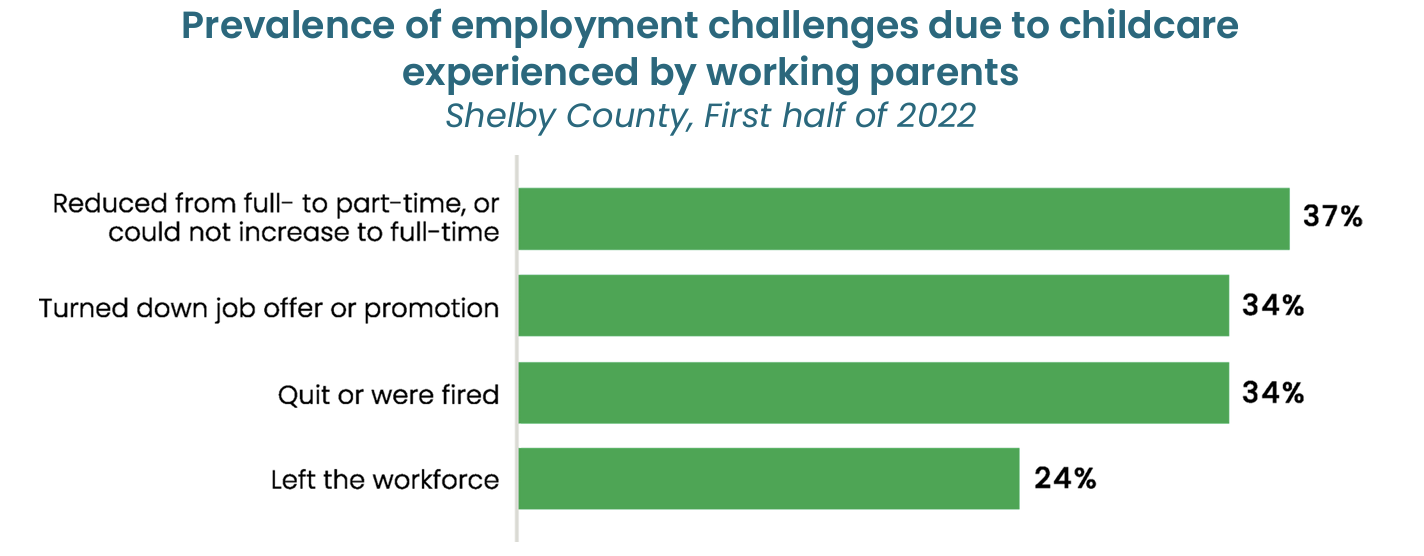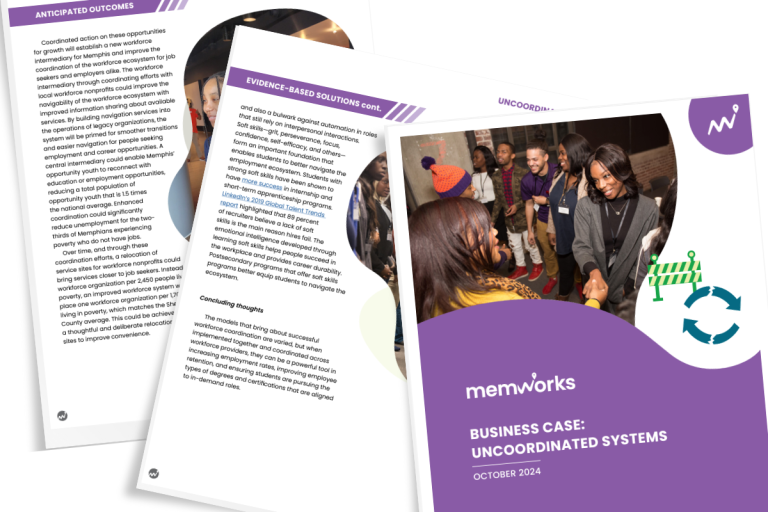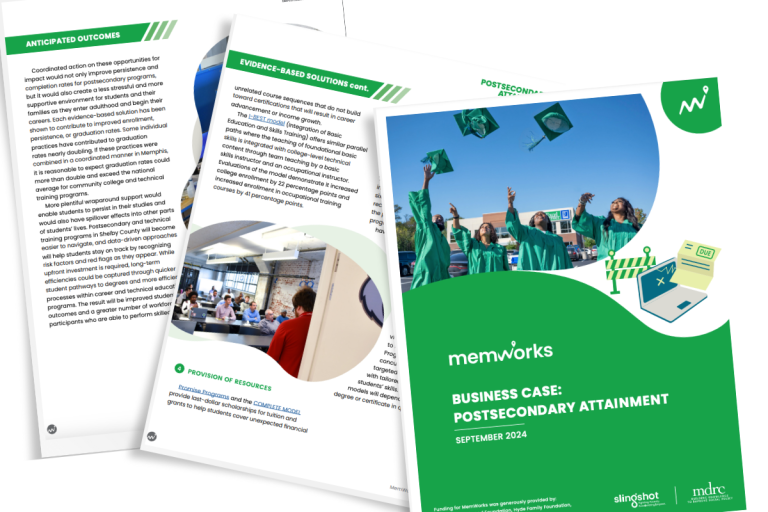High costs and lack of proximity to quality childcare inhibit employment options and hours
MemWorks has helped us identify the root causes that are impeding employment pathways for Memphians experiencing poverty. An accurate understanding of these roadblocks is absolutely essential, but without knowing how to effectively overcome these roadblocks, we are still unable to enable pathways to living-wage jobs.
We are excited to share evidence-based interventions that can help our community overcome these roadblocks. Over the previous five weeks, we shared solutions for roadblocks that are focus areas for MemWorks where our research was particularly comprehensive. This week, we’ll begin to introduce solutions for additional roadblocks that we acknowledge pose similarly severe challenges to Memphians. Because these roadblocks are not a core focus of the MemWorks effort, our research is focused and less expansive. We maintain the same research standards, however, for the effective practices we are introducing. This email introduces evidence-based practices to alleviate the persistent challenges of access to childcare for families.
55% of working parents in Shelby County reported career challenges due to inadequate childcare
Working parents in Shelby County struggle to access available and affordable childcare. Alarmingly, the average annual cost for childcare in Shelby County rivals that of state university tuition. Furthermore, less than 10% of parents in the county benefit from available government-funded financial aid for childcare. When parents can’t find childcare, they struggle to pursue living-wage career opportunities and retain good jobs.

Several evidence-based models and programs address childcare challenges in other communities
Three evidence-based examples were identified that show promise in addressing childcare challenges for working parents:
- The Kita System in Germany is a government-backed program that provides funding for children to attend privately or publicly owned and operated childcare centers from infancy to seven years in age. This is an example of a universal childcare model where families are eligible for government support based on income and children are guaranteed a spot in local Kita Centers.
- The Cooperative Childcare System is a community-driven approach that relies on a cooperative formed by childcare workers and parents. The cooperative conducts a needs assessment and develops a suitable facility to care for the children of the parents in the cooperative. The cooperative operates with a democratic governance structure and a fair pricing model based on income.
- The Otter Model operates as an intermediary platform connecting parents in need of childcare with stay-at-home parents willing to provide such services. This peer-to-peer approach fosters a sense of community and trust. Initially starting as a childcare swap platform, Otter evolved to a paid service model, allowing stay-at-home parents to earn income. It quickly grew and attracted substantial investment, indicating strong investor confidence and highlighting the scalability and growth potential of the intervention. Affordability concerns remain because it is not paired with government support.
There are a number of nonprofits in Memphis that provide childcare services to their clients, but none of these operate at a scale necessary to fully address the problem. Many of the interventions described above provide helpful stopgaps, but at-scale, solving the childcare access and affordability challenge for Memphis’ working parents will require government-funded support and employer collaboration. With public and private support, we can improve the access and affordability of childcare services in Memphis.





